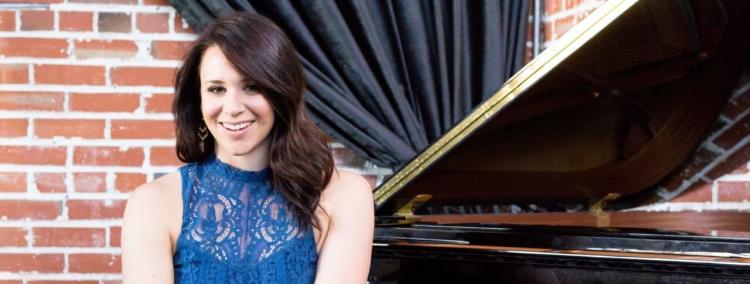Just the beginning

“It’s a very male-dominated field, which can be discouraging for a young woman, to be the only one in your situation.”
Booth, who grew up in Westminster, has seen a good deal of success for a young jazz artist: She’s released four albums, she heads up a trio in Denver, she recently started a big band, and just this January, she won the prestigious Young Composer Showcase competition at the Jazz Education Network’s annual conference.
She says her mission now, in addition to focusing more on composing, is to provide mentorship opportunities for young women in jazz. “It’s really hard to feel like you have a place in the music. I want young women to feel like they can learn this art form and not feel afraid, discouraged or judged.”
Recognizing a need
In 2017, with this in mind, Booth collaborated with the Colorado Conservatory of Jazz Arts to launch SheBop, a workshop for female-identifying jazz musicians ages 10 to 18.
“The executive director of CCJA, Christine Romaine, had experienced the lack of women in jazz a generation ahead of me,” Booth says. “It had always been a dream of hers to create some leg of the nonprofit that would specifically support and inspire young women to play jazz, and I worked with her to launch this program.”
Since its founding, SheBop has hosted three camps with 30 to 40 middle and high school girls in attendance. This March, the third iteration at CU Boulder hosted more than HOW MANY students for two days of improvisation practice, listening sessions and mentorship, culminating in a performance at Dazzle Jazz on March 8—International Women’s Day.
“The biggest thing we want to do is create mentorship. The research tells us that if you can’t see someone who looks like you in the field, you’re not going to succeed,” Booth explains. “It’s actually the subject of my master’s thesis: the philosophy and the pedagogy behind the camp.”
Booth says it’s clear that there’s a need for an opportunity like SheBop based on the growing numbers who attend every year. Area band directors have responded positively, too.
“Female band directors have been a huge factor. They really want the young women in their programs to keep playing. There’s a decrease in the retention of young women in jazz bands once you get out of middle school.
“Another factor in the increase in attendance is that when the girls get here, they really dig it. It’s probably the first time they’ve played jazz outside of their school jazz band, and they connect with other young women in the area and keep in touch with them. A couple of them have actually started bands with girls they met at SheBop, which is affirming.”
Solving a problem
Before real change can take root in jazz and music in general, Booth admits, the current leaders of the art form need to take note and help drive the conversation beyond the female musicians who are already involved.
“It’s all about awareness. Jazz culture as a whole needs to hire more women and see the value a woman could bring to a university faculty or a band. Women are just as good as men in this art form.”
As for Booth, she says she’ll continue to advocate for young women in jazz in whatever way she can. “I work really hard to create a space for young women, to make sure I’m hiring women, especially in my big band.
“My biggest advice to young women in jazz is to persevere. Your voice is really important, and the world needs to hear the music you have within you.”


